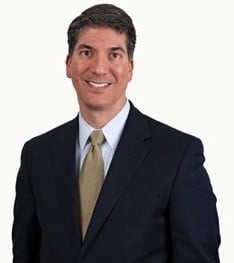Alternative assets are occupying an increasingly important niche within the asset management community, and companies are systematizing the way they go about selecting managers.
EFG Asset Management’s asset allocation menu consists of three broad asset classes: equities, fixed income and alternative investments.
“We seek to exploit return sources at both the top down asset allocation and bottom up security and manager selection levels with the goal of becoming a globally recognized asset management unit that can add significant value to both high-net worth and institutional clients through offerings of differentiated products,” said Matias Ringel, head of hedge fund research at EFGAM.
EFG Asset Management is an integral part of EFG International's global private banking activities, working closely with Client Relationship Officers and their clients. It is also a distinct, specialist asset manager, providing a range of actively-managed investment solutions to professional advisors and institutional investors worldwide.
Ringel’s team covers “on a relatively active basis over 300 funds and have a large number of other funds on our radar screen, which we analyze and monitor via our proprietary database,” he said. “EFGAM has a detailed investment process involving a ‘top down macro’ view that gets updated each quarter and is reflected in various hedge fund strategies.”
Hedge fund and fund of fund advisers play a critical role in meeting the demand for alternative assets, such as providing expertise with respect to the implementation of various strategies.
“Though the experiences of 2008 are becoming a distant memory for some, they provided a recent catalyst for many investors to seek meaningful sources of diversification for their investment portfolios” noted Lee Partridge, chief investment officer Salient Partners a Houston-based investment management firm with $18.5 billion in assets under management.
“The diversification benefits ascribed to bonds are thought by many to be particularly challenged by the current low interest rate environment in which we find ourselves, in addition to uncertainty regarding the Federal Reserve's contemplation of tapering its open market purchases of bonds and mortgages,” added Partridge.
 Lee Partridge, Salient Partners
Lee Partridge, Salient Partners
In contrast with Ringel’s feelings about trend following, Salient Partners has long been an advocate of supplementing its use of hedge fund strategies with an array of active tools such as trend following and alternative betas. Alternative betas, which include size, value, carry and momentum may provide positive returns and diversification over the long term because they are liquid, scalable and differ from traditional market exposures.
“Alternative investments can provide a source of meaningful diversification for investors with low correlation to more traditional investments whose returns are principally explained by movements in public equity or bond prices,” Partridge continued. “Nonetheless, investors must be aware that the term ‘alternative assets’ can cover a wide variety of investment options with considerable variability with respect to one another.”
As Salient’s CIO, Partridge spearheaded development of the firm’s asset allocation funds, credit-related strategies and quantitatively managed funds and he constantly strives to keep expenses from eating into client returns. In order to combat the high fee structure that serves as a barrier to hedge fund adoption, Partridge has implemented a number of more direct investing strategies.
He explained that hedge fund and fund of fund advisers play a critical role in meeting the demand for alternative assets, such as providing expertise with respect to the implementation of various strategies. “Fund-of-funds generally conduct extensive research on alternative investment providers, including operational due diligence that verifies the integrity of third party administrators, audit firms, legal counsel and tax counsel as well as internal risk management functions, processes, decision making hierarchies, investment processes and experience of key personnel,” he said.
Alternative investments can provide a source of meaningful diversification for investors with low correlation to more traditional investments whose returns are principally explained by movements in public equity or bond prices.
Nonetheless, investors must be aware that the term "alternative assets" can cover a wide variety of investment options with considerable variability with respect to one another.
EFGAM currently has 57 hedge fund managers in its eligible offering, ranging across arbitrage, equity-focused, and traditional hedge fund investment strategies (e.g., global macro).
“We have weekly meetings to focus on idea generation and to review the funds on our list to make sure any ratings changes are communicated and understood by the team,” said Ringel. “On a monthly basis, we have our manager selection meetings, which ink our views on asset allocations and market observations.”
For the third quarter of 2013, EFGAM has a positive strategy outlook on equity long short, equity market neutral, and event driven, and is cautious on fixed income arbitrage, systematic trading, and credit.
“We are generally cautious about most trend following strategies, given sharp market reversals and a lack of actionable trends,” Ringel said. “We tend to prefer more nimble discretionary macro managers with an expertise in currencies and interest rate cycles who can react quickly if themes prove short-lived.”














